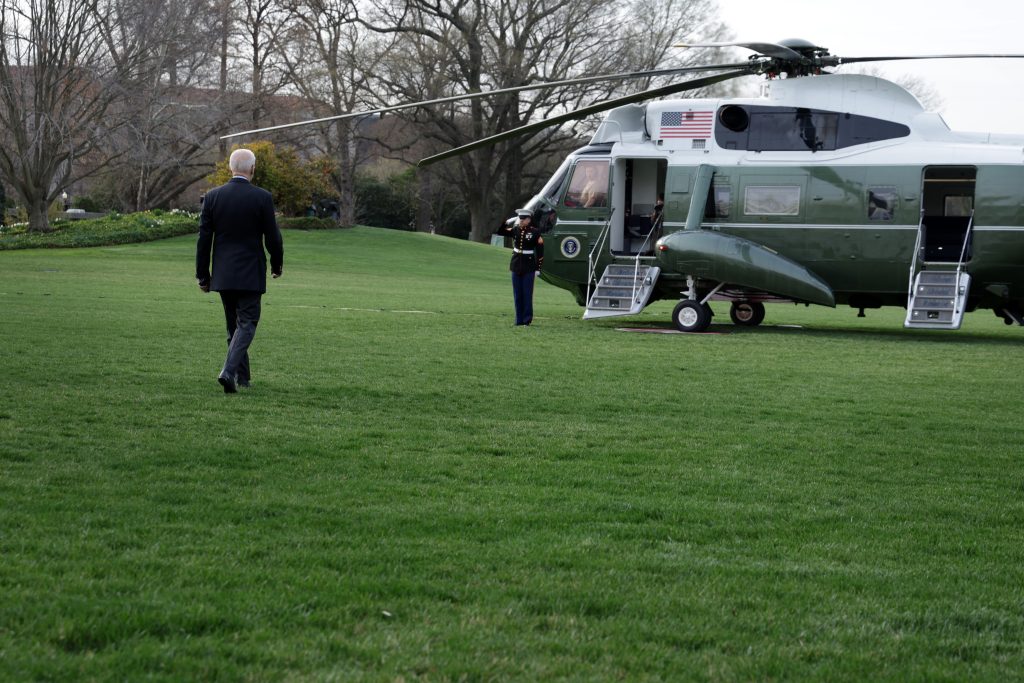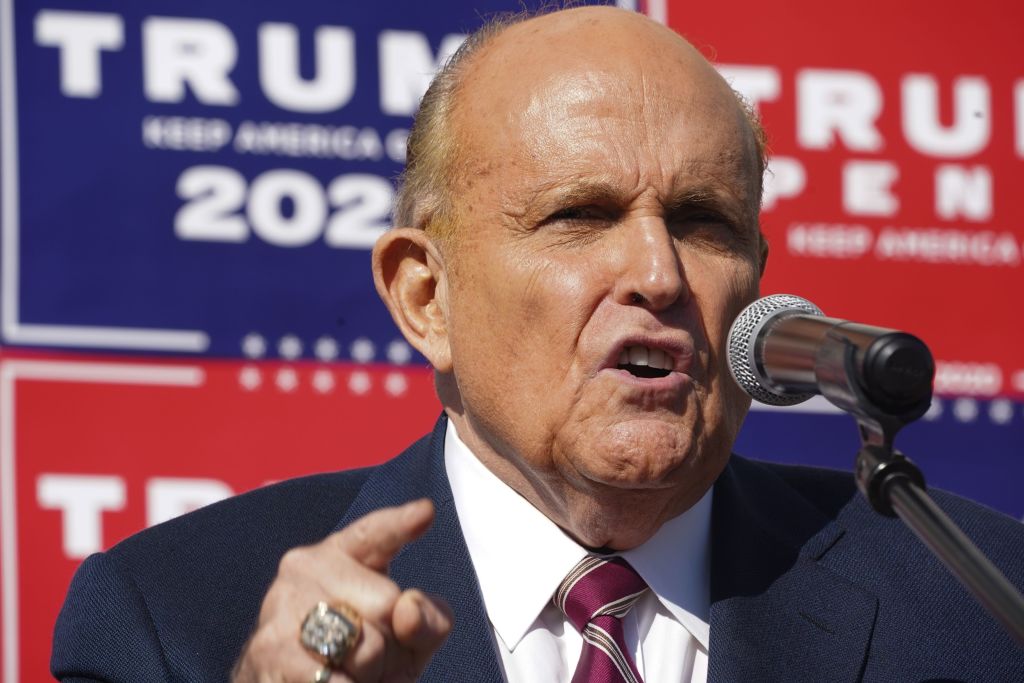As the fighting continues to rage, both sides of the Atlantic fear that Russia will find its footing, Ukraine will be overtaken in parts of the east and south, and the weapons pipeline of the West does not slow down.
Biden departs for Poland on Monday to meet with President Andrzej Duda and other key NATO leaders. U.S. officials believe Ukraine’s defense is about to enter a critical phase with Russia’s launch of its much-telegraphed offensive. The Biden administration has urgently pressed President Volodymyr Zelenskyy’s administration to consolidate its gains — and perhaps launch its own counterattack.
The White House has also told Zelenskyy’s team, by multiple officials, to prepare for the offensive now, as arms and aid from Washington and Europe flow freely, lest support from the Ukraine’s European neighbors are limited.
In Washington, support for Ukraine has remained largely bipartisan, though some in the administration fear it may be more difficult to send additional aid to Kyiv amid growing resistance from the new government-controlled House. the Republicans. For now, however, even some of Biden’s fiercest critics are hailing the work he has done.
“He did well to link our national interests to the fight and that it is good for the world that Russia does not succeed,” the senator said. Lindsey Graham (RS.C.) said in an interview. “This will be one of the defining moments of his presidency.”
Biden’s trip to Poland comes days before the first anniversary of the Russian invasion, a date that many military analysts believe symbolism-loving Putin could mark with a show of force. Aides explored the attempt to secretly smuggle Biden across the Ukrainian border, but a trip was all but ruled out. The president is one of the last Western leaders not to make the trip, which would require a 10-hour train ride or a daring flight. But most aides think the security risk to Biden or Ukraine wouldn’t be worth it.
Biden will stress the need for the West — and voters back home — to stay the course with Ukraine and he will tout the need for alliances and American leadership on the world stage, aides said. But his speech will also reflect the duality of the moment.
On the one hand, it will celebrate the remarkable resistance of Ukraine. But it will also recognize persistent vulnerabilities. Despite kyiv’s successes, Russia still controls almost 20% of Ukraine and the conflict has turned into a brutal war of attrition. Moreover, Putin shows no signs of hesitation in his vow to control all of Ukraine, according to US officials. According to the best estimate of US intelligence, Putin believes that despite the setbacks his army has faced, Russia still has two decisive advantages: manpower and time. European intelligence officials further assess that Putin is confident he can wait out an inevitable break in Western resistance.
Although the Russians have suffered heavy losses, they still have many more troops than Ukraine to send into battle, including ex-prisoners pushed into battle by the Wagner mercenary group. This group has shown surprising success at the front, according to US officials, while showing little regard for casualties.
Faced with little domestic pressure to end the war, Putin is acting as if he can outlast the Western alliance. Some in the Biden administration believe Putin will continue the onslaught — and may launch another mass mobilization of men — until at least the 2024 U.S. presidential election, hoping a candidate less committed to the cause Ukrainian be victorious. Former President Donald Trump has openly called for an immediate end to the war to prevent it from escalating, even if that would allow Russia to retain its gains. And a recent poll suggests that American voters’ willingness to send arms and weapons to kyiv has slipped.
“I think the jury is still out on whether [Biden] can keep NATO together,” the retired brigadier said. General David Hicks, who commanded all US and NATO forces tasked with training and advising the Afghan Air Force. “It will only become more difficult in the future. Ukraine will have to show results with the aid it has received.
So far, European capitals have remained largely united in supporting Kyiv despite the economic and energy challenges stemming from the war. In Washington, the Biden administration believes the funding Congress passed late last year should carry Ukraine through much of 2023 and has been encouraged so far that the GOP leadership on Capitol Hill has continued to publicly support Kiev.
At the Munich Security Conference, arguably the world’s premier defense-focused forum, Zelenskyy rallied the West on Friday to help Ukraine’s ‘David’ defeat Russia’s ‘Goliath’. “Speed is crucial,” he said, hinting at a rapid pace of handing over weapons, as Putin “wants the world to slow down.”
But there is a small but growing faction among House Republicans that questions the need to fund Ukraine.
“There was never a blank check to support Ukraine,” National Security Council spokesman John Kirby said, noting during a Wednesday briefing that the administration would stand by. of Kiev “as long as it takes” to repel Russia. “We prove every day that this is not just a moral or philosophical effort.”
Still, lawmakers sympathetic to Ukraine’s cause have expressed confidence that both chambers will continue to support the effort.
“The overwhelming majority of Congress – both Democrats and Republicans – continues to be in tune with the need to provide assistance to Ukraine, because we know what will happen if Ukraine falls,” the official said. senator. Jeanne Shaheen (DN.H.), who chairs the Europe panel of the Senate’s Foreign Relations Committee. “Bipartisanship in Congress and continued coordination with our allies is essential as we move forward to support Ukraine, because this is not just about Putin – this is about sending a message to everyone. dictator who threatens democracies that he will pay a heavy price.”
Over the past few weeks, kyiv has relentlessly requested material it believes it needs to deal with a larger war. It has received a promise of Western tanks, although most will not reach the battlefield for months or even years. But, so far, Ukraine has been rebuffed in its request for fighter jets. A more pressing need has emerged as Russia intensifies its assault: ammunition.
NATO Secretary General Jens Stoltenberg recently warned that the Russian offensive has already begun and there are signs of intensifying fighting. There is real concern within the White House about Europe’s ability to provide artillery munitions and other aid to Ukraine. The continent’s defense industrial base is stretched, and some countries are already saying their stockpiles are being stretched.
On stage in Munich, German Chancellor Olaf Scholz addressed the issue, calling for “permanent production of the most important weapons we use”. French President Emmanuel Macron followed suit after saying Europe needed to “invest more in defence. If we want peace, we need the means to achieve it.
The comments clearly sounded alarm bells in European power centers. “The war has revealed deep shortcomings in European countries’ capabilities and weapons stockpiles,” said Alina Polyakova, director of the Center for European Policy Analysis in Washington, DC. “The problem is that they already don’t have enough to supply and resupply Ukraine at the same time.And while the US defense industry can pivot fast enough, many believe it cannot.
As European capitals look to Washington to fill the void, the administration has pushed back on allies to do more, noting that the war could stretch into 2024 and beyond. Administration officials insist they will not pressure Ukraine to negotiate, although some diplomats have speculated that a deal could be offered to restore the borders early in the year. war: Ukraine would regain its territory to the east and south, but Russia would retain Crimea.
In a private Zoom meeting on Wednesday with outside experts, Secretary of State Antony Blinken said Ukraine’s takeover of Crimea is a red line for Putin. This is one of the reasons why the United States encourages Kiev to focus on where the majority of the fighting is taking place, even though Washington still claims that any decisions to counter Russia are the sole decision of Ukraine.
But the reality Biden will face in Poland is that Zelenskyy has made it clear that he will not negotiate until all Ukrainian territory is restored – while ensuring that war extends to the distant horizon.
“We’re here for the long haul and it’s going to be for a while,” said Rachel Rizzo, senior researcher at the Atlantic Council’s European Center. If Western support begins to fade, “it is undeniable that this will have an effect on both the outcome and the duration of the war”.
Politico
Don’t miss interesting posts on Famousbio










